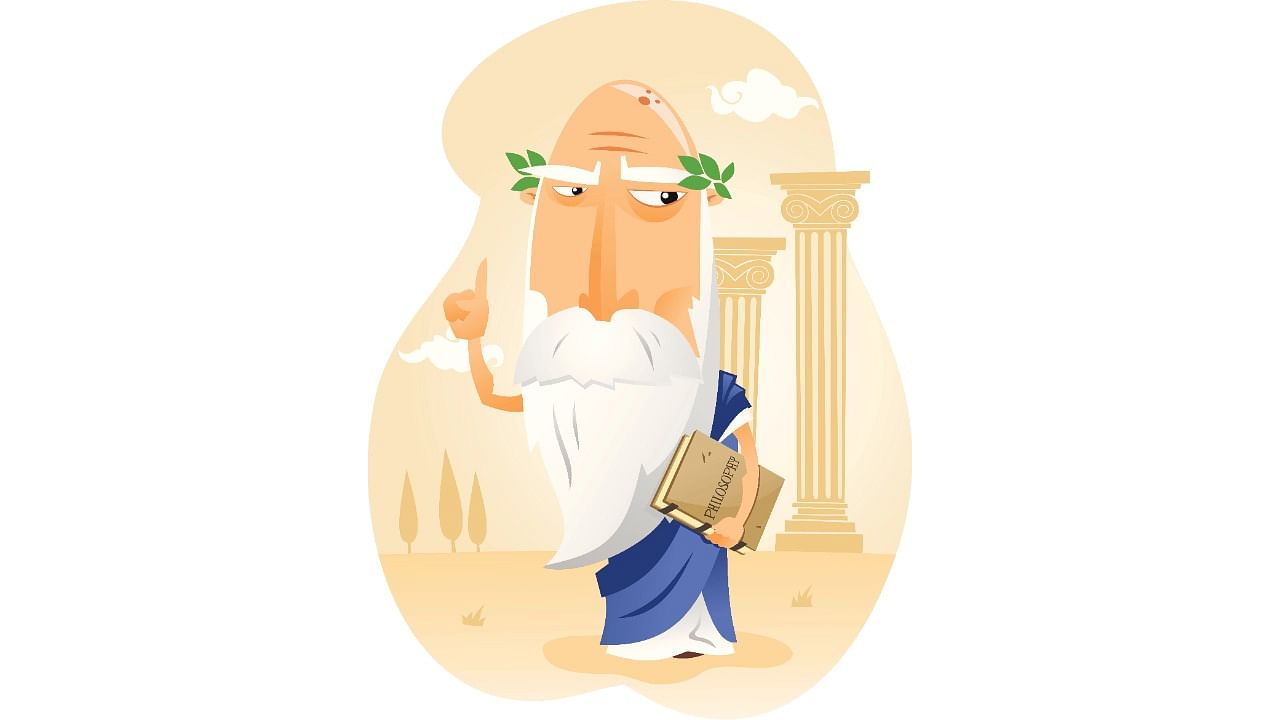
The one vivid image I had of the man I was about to meet was of a slender figure running naked down a street screaming “Eureka!” As I waited, a silver-haired man wearing the off-white robes of the ancient Greeks came walking towards me.
“So, you’re the person who wanted to talk to me?” he growled.
“Yes! You’re Archimedes — the one who solved so many problems in science and mathematics before we even thought of them!” I heaped praises on him, hoping it would ease him off. Predictably, the growl became more of a purr.
“Hmm… So what did you want to talk about?” Archimedes asked but didn’t wait for an answer. “I don’t understand people who aren’t curious about the wonderful world around us; about how things work. There’s nothing I love more than having a juicy problem to solve.”
“Yes, I know,” I said, a bit taken aback by the passion. Then I recovered to ask, “Can you tell us how you came to express what we call the ‘Archimedes’ principle’?”
He recalled, “It all started with my cousin King Hieron. He wanted to know if he had been cheated. He’d given a goldsmith some gold to make him a crown but the rumour got around that although the crown weighed just as much as the gold given, it wasn’t made of pure gold. Hieron wanted me to find out if the rumours were true but gave me strict instructions to not damage the crown. I couldn’t melt it down, for instance.”
He added, “I was desperate. And then, one day, as I got into a tub of water for a bath, the answer came to me. You see, when I got in, the water in the tub overflowed and that sparked the idea that the weight of that water must be equal to the density of my body. Gold is denser than other metals so if I could measure the amount of liquid that could be displaced by the amount of gold in question against the amount displaced by the crown I would have an answer.”
“The Archimedes’ principle states that the buoyant force on an object submerged in a fluid is equal to the weight of the fluid that is displaced by that object,” I pitched in, eager to show him that I had done my homework.
“Exactly!” he said. “Two objects can weigh the same because the gravitational pull on them is the same but the buoyancy force resisting them would be different depending on their density.”
“You ran down the streets naked. What about that bit?” I asked hesitatingly.
“I am so sick of people asking me about that,” Archimedes bellowed. “Look, I was eager to tell the king my solution. I may have forgotten my clothes in the excitement but why is that so important?!”
“It’s not important,” I quickly agreed and pivoted the conversation to another of his great discoveries. “Why don’t we talk about the lever?”
“I didn’t invent the lever. I just explained how it worked. That led me to design pulley systems that helped sailors lift heavy things using the principle of leverage. That principle is such a wondrous thing. Ah, geometry and physics! What wonders can be achieved if only you understand them and love them,” Archimedes was getting animated again.
“Don’t you see the beauty in a circle? Or wonder how a spiral works?” he fetched more examples. “Even engineering, medicine and astronomy owe so much to you!” I added.
“If that fool Roman soldier hadn’t been too impatient while I finished the mathematical problem I was solving, I could have done so much more,” he sighed.
I harked back to the story of how Archimedes was killed by a soldier for not responding immediately to the summons from a Roman consul as he was engaged in an experiment. I could easily imagine this great mathematician, eyes gleaming, intent on his circles and spheres, oblivious of everything else, as he faded away.
(The author is a writer and a soft-skills and
communication trainer)